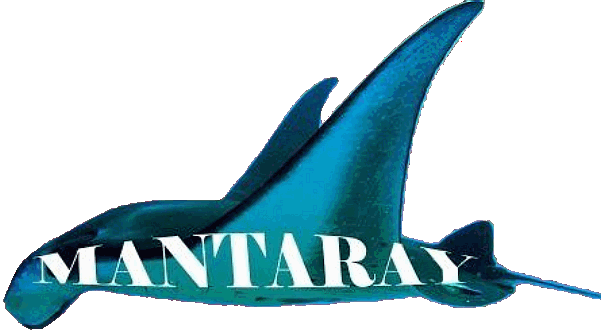|
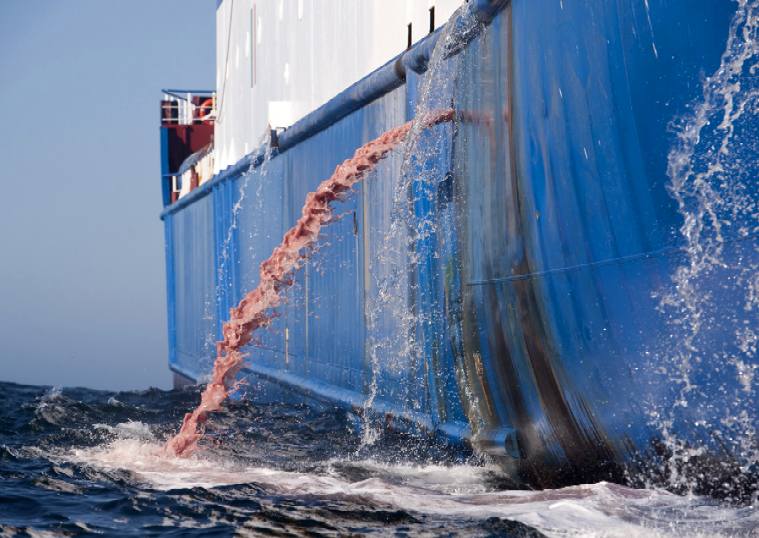
FISH
RESPONSIBLY - We
need fish for food that are toxin free. But, modern fishing boats and
ships pollute the seas as they wreak havoc with the eco system using their
nets, while pumping exhaust fumes into the atmosphere. It's a MARPOL
nightmare that needs to be reigned in until fishing
fleets are no longer marine polluters, and ocean plastic, and other wastes
are addressed. We are a long way off, but there are possible solutions on
the horizon.
The Pew Charitable Trusts is an independent non-profit, non-governmental organization (NGO), founded in 1948.
With over US $5 billion in assets, its stated mission is to serve the public interest by "improving public policy, informing the public, and stimulating civic life".
According to the 2009 annual report, as of 30 June 2008, the Trusts owned over US$5.8 billion in assets. For the 12 months ending on that date, total revenues were about US$360
million and total expenses were about $250 million, of which about $14 million were for operating costs and fund raising expenses.
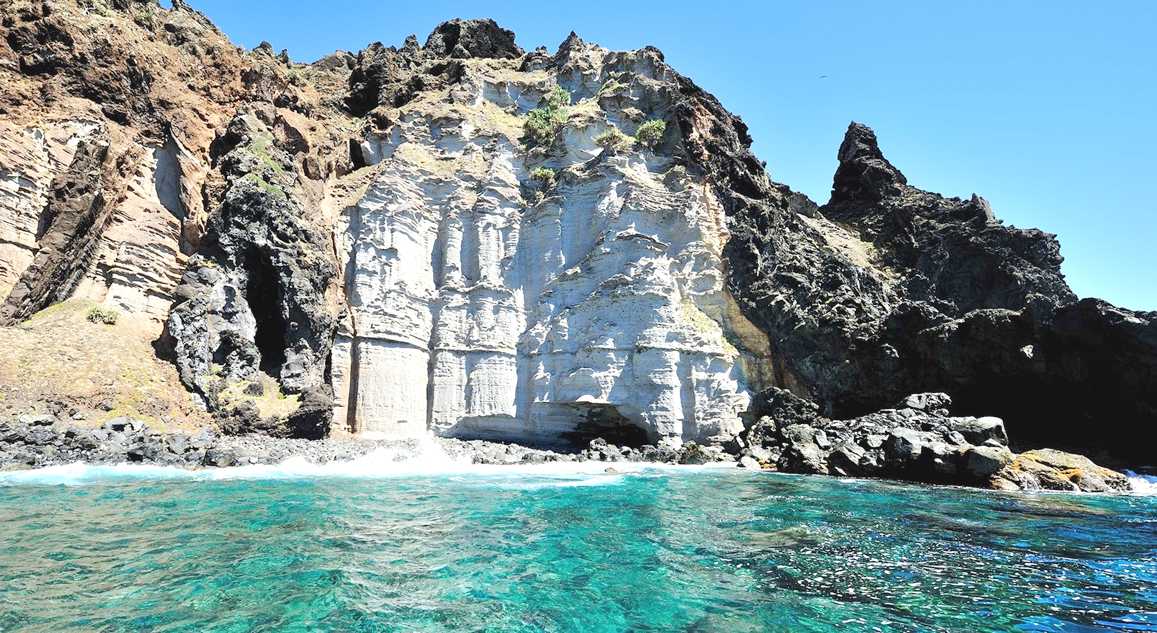
PITCAIRN
ISLANDS - In March 2015, the United Kingdom announced its intent to create the world’s largest fully protected marine reserve in the remote waters surrounding the Pitcairn Islands in the South Pacific Ocean. The Pitcairn Islands Marine Reserve will span 834,334 square kilometers (322,138 square miles).
This is the setting for the Mutiny
On the Bounty series of movies about Captain Bligh's cruelty to his
crew and Christian Fletcher's efforts to restore some kind of
reasonableness on board one of Her Majesty's ships.
Pitcairn hosts one of the most intact marine ecosystems on the planet with some 1,249 identified species, including the world’s deepest known living plant, a species of encrusting coralline algae. The territory has some of the clearest ocean waters anywhere, which allow corals to grow at depths greater than expected in Pacific reefs.
Within these waters lie a complex community of hard and soft corals that are home to hundreds of species of fish, including two found nowhere else on Earth: the squirrelfish and the many-spined butterflyfish.
Encompassing 99 per cent of Pitcairn’s exclusive economic zone, the Pitcairn Islands Marine Reserve will be about 3½ times the size of the land area of the
United
Kingdom. Within the reserve, all forms of commercial extractive activity, such as fishing and oil, gas, and mineral mining, will be prohibited, but traditional sustenance fishing by Pitcairn islanders will be allowed. The reserve starts 12 nautical miles from Pitcairn Island and extends out to the full 200-nautical-mile limit of these waters.
The British overseas territory is composed of four islands: Pitcairn, Henderson, Oeno, and Ducie. Only Pitcairn is inhabited. Most of its approximately 50 residents are descendants of the mutineers who took control of the British Royal Navy’s HMS Bounty in the late 18th century.
In 2013, The Pew Charitable Trusts and the National Geographic Society joined the local government, the Pitcairn Island Council, in submitting a proposal calling for creation of a marine reserve to protect these spectacular waters.
CURRENT PROJECTS
The Trusts' public policy areas include the environment, state policy, economic policy and health and human services.
The Trusts, with other groups, backed an effort to create marine protected areas in the Pacific Ocean, near the Mariana Islands. The protected area was officially designated in January 2009, and includes the
Mariana
Trench, the deepest ocean canyon in the world. Another marine protected area that the Trusts and other groups sought to protect is Papahānaumokuākea Marine National Monument which was protected by
President Bush in 2006.
Pew's environmental portfolio is designed to help meet what they view as one of the seminal challenges of our time: saving the natural environment and protecting the rich array of life it supports.
The aim is to strengthen environmental policies and practices in ways that produce significant and measurable protection for terrestrial and marine systems worldwide. In doing so, Pew works to advance scientific understanding of the causes and consequences of environmental problems, design innovative policy solutions to these problems and mobilize public support for their implementation.
Efforts are focused on reducing the scope and severity of three major global environmental problems:
1. Destruction of the world's oceans, with a particular emphasis on marine fisheries.
2. The loss of large wilderness ecosystems that contain a great part of the world's remaining biodiversity.
3. Changes to the Earth's physical and biological systems linked to the buildup of greenhouse gases that are altering the world's
climate.
The Trusts also funds the Pew Research Center, the third-largest think tank in
Washington,
D.C., after the Brookings Institution and the Center for American Progress.
The Trusts have worked closely with the Vera Institute of Justice on issues related to state correction policies in the public safety performance project. In 2008, the Pew reported that more than one in 100 adults in the United States is in jail or prison, an all-time high. The cost to state governments is nearly $50 billion a year and the federal government $5 billion more. The report compiled and analyzed data from the federal Bureau of Justice Statistics and Federal Bureau of Prisons and each state's department of corrections.
Pew reported in 2009 that "explosive growth in the number of people on probation or parole has propelled the population of the American corrections system to more than 7.3 million, or 1 in every 31 U.S. adults." "One in 31: The Long Reach of American Corrections" examined the scale and cost of prison, jail, probation and parole in each of the 50 states, and provides a blueprint for states to cut both crime and spending by reallocating prison expenses to fund stronger supervision of the large number of offenders in the community.
"Based on data, science, and non-partisan research, the Pew works to reduce hidden risks to the health, safety, and well-being of American
consumers." One program, the Pew Scholars Program in the Biomedical Sciences, is intended to support promising early and mid-career scientists investigating human health, both basic and clinical. The awards provide flexible support ($240,000 over a four-year period). Grantees are encouraged to be entrepreneurial and innovative in their research.
The trust also helped fund the Gospel and Our Culture Network, which published books such as Missional Church: A vision for the sending of the Church in North America.
HISTORY
The Trusts, a single entity, is the successor to, and sole beneficiary of, seven charitable funds established between 1948 and 1979 by J. Howard Pew, Mary Ethel Pew, Joseph N. Pew, Jr., and Mabel Pew Myrin — the adult sons and daughters of Sun Oil Company founder Joseph N. Pew and his wife, Mary Anderson Pew. Honoring their parents’ religious conviction that good works should be done quietly, the original Pew Memorial Foundation was a
grant-making organization that made donations anonymously. The foundation became the Pew Memorial Trust in 1956, based in Philadelphia, the donors’ hometown. Between 1957 and 1979, six other trusts were created, representing the personal and complementary philanthropic interests of the four siblings. The Trusts remains based in Philadelphia, Pennsylvania, with an office in Washington, D.C.
Although today the Pew Charitable Trusts is non-partisan and non-ideological, Joseph Pew and his heirs were politically conservative. The mission of the J. Howard Pew Freedom Trust, one of the seven funds, was to "acquaint the American people with the evils of bureaucracy and the values of a free market and to inform our people of the struggle, persecution, hardship, sacrifice and death by which freedom of the individual was won". Joseph N. Pew, Jr. called Franklin D. Roosevelt's New Deal "a gigantic scheme to raze U.S. businesses to a dead level and debase the citizenry into a mass of ballot-casting serfs".
Early priorities of the Pew Memorial Trust included cancer research, the American Red Cross, and a pioneering project to assist historically black colleges. Later beneficiaries included conservative organizations such as the John Birch Society, the American Liberty League, and the American Enterprise Institute, as well as environmental organizations such as the Woods Hole Oceanographic Institution, Oceana, and mainstream think tanks like the Brookings Institution The Trusts continues to fund charities in Philadelphia.
In 2004, the Pew Trusts applied to the Internal Revenue Service (IRS) to change its status from private foundation to nonprofit organization. Since the Pew's change to a charitable foundation, it can now raise funds freely and devote up to 5% of its budget to lobbying the public sector.
According to the Pew's 2009 Annual Report, five of the twelve Directors serving on the Board are named Pew. Two of the five are physicians.
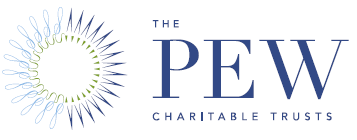
PEW
CONTACTS
The
Pew Charitable Trusts
2005 Market Street, Suite 1700
Philadelphia, PA 19103-7077
United
States
http://www.pewtrusts.org/
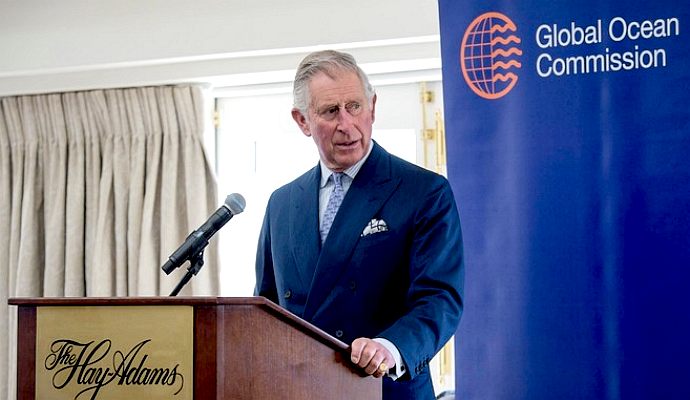
CONCERNS
SHARED - HRH
the Prince of Wales speaking at a Global Ocean Commission event in Washington DC
in March of 2015. The future King of England has consistently kept a
weather eye open to help safeguard the marine environment.
GOM
OBJECTIVES The objective of the Global Ocean Commission is to address
the issues hereis by formulating ‘politically and technically feasible
short, medium, and long-term recommendations.
These final recommendations were to be published in early 2014, shortly before the UN General Assembly
began discussions on protecting high seas biodiversity – a commitment made at the Rio+20 summit
in 2013. The work of the Commission thus focuses on four key tasks:
1. To examine key threats, challenges, and changes to the ocean in the 21st century, and identify priority issues. The Commission will utilise both scientific and economic evidence, drawing on existing reports from world experts, as well as commencing original research in partnership with other organisations.
2. To review the effectiveness of the existing legal framework for the high seas in meeting these challenges. According to the Commission, this means a special focus on the effectiveness of regional fisheries management organisations, particularly with respect to their accountability, transparency, and performance. It also means reviewing the governance gap on biodiversity conservation and analysing options for combatting IUU
fishing. The Commission will also assess the suitability of the existing legal regime for regulating emerging uses of the global ocean.
3. To engage with interested parties around the world, as well as the general public. The Commission will connect with fishers, military and merchant navies, recreational sailors, seafood companies, conservation groups and the emergent seabed mining business. The Commission also aims to raise understanding among policymakers, economists and other groups, including the general public, of the implications should high seas issues not be reformed.
4. To make recommendations regarding ‘cost-effective, pragmatic and politically feasible reforms of high seas governance, management and enforcement.’ While the threat analysis will take account of external issues such as climate change, recommendations will focus on reforms that can be achieved by evolving high seas governance. Some may concern the fundamental legal framework under which the global ocean is governed, whereas others may focus on improving the effectiveness of existing mechanisms.
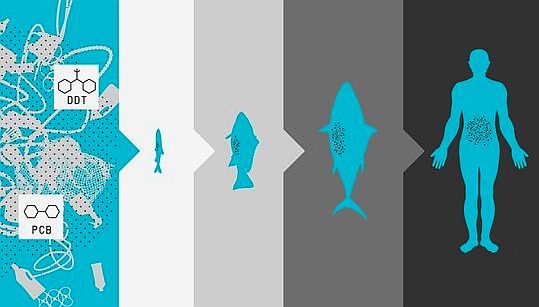
Tons of plastic floating in our oceans is a serious problem we face on this globe, considered to be one of most serious threats to our oceans. 90% of all trash floating on the ocean’s surface is in the form of plastic materials, with 46,000 pieces of plastic per square mile. Plastic does not biodegrade, it photo-degrades with sunlight, breaking down into smaller and smaller pieces. These plastic pieces are eaten by marine life and eventually works it way up the food chain
- as per the diagram above. 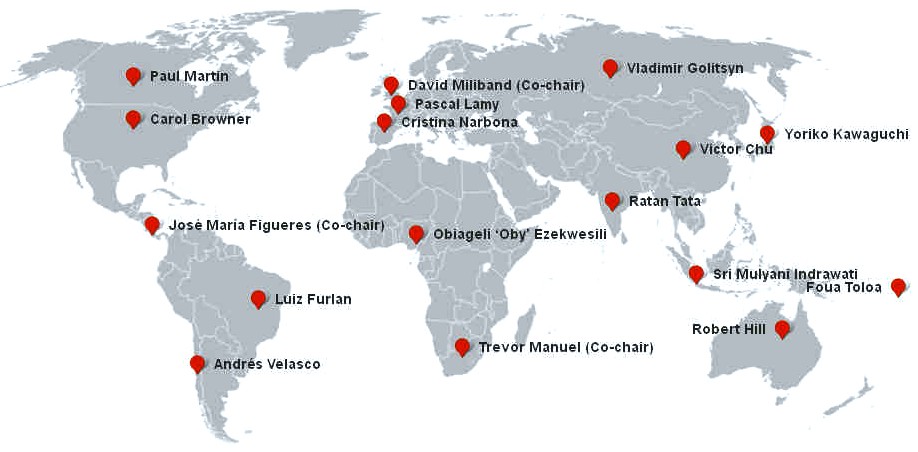
GLOBAL
OCEAN COMMISSIONERS
- A map of the world showing the location of the GOC's commissioners. To
see more about this distinguished group of representatives, click on the
map above.

The Global Ocean Commission
Somerville College
Woodstock Road
Oxford, OX2 6HD
UK+44 (0) 1865 280747
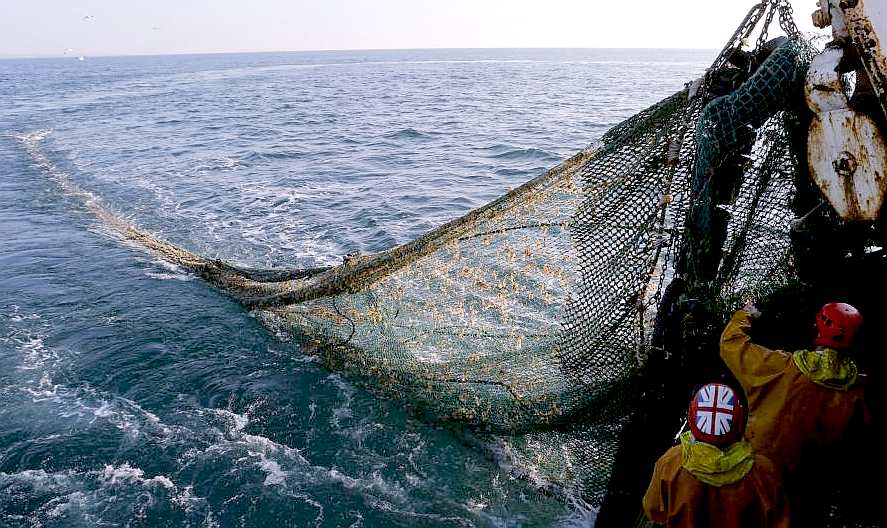
RICH COUNTRIES PAY ZOMBIES $5 BILLION A YEAR IN SUBSIDIES TO PLUNDER THE OCEANS
- The industrial fleet that now drags the high seas for fish has a combined engine power 10 times stronger than it did in 1950. Its nets are so huge that they’re sometimes big enough to hold 12 jumbo jets. And it is largely thanks to this all-out assault on high-seas fishing stocks that two-thirds of those stocks
(paywall) are at the brink of collapse - or well past the edge. 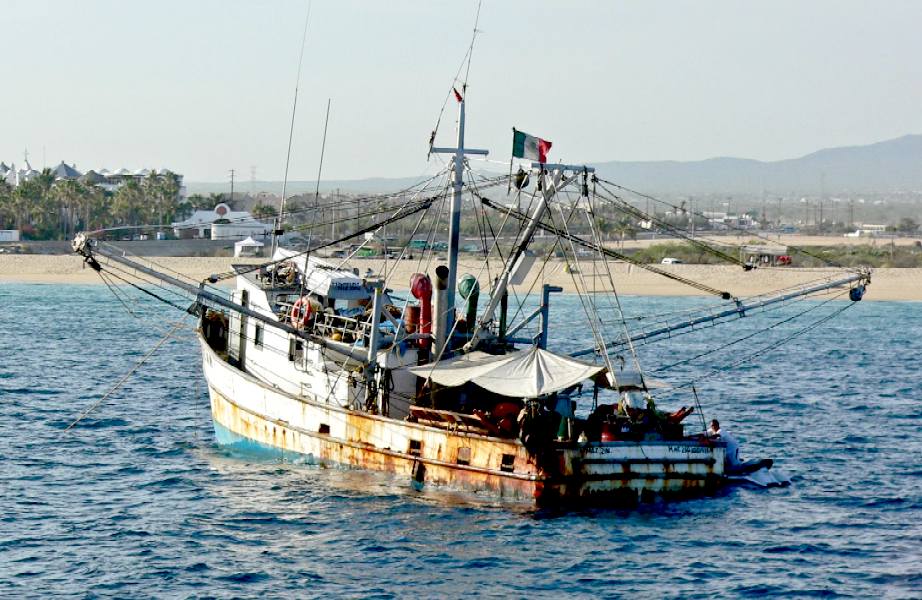
But instead of discouraging this trend, rich countries are paying those vessels to
over-fish like there’s no tomorrow. Japan, China, the US, the EU and other countries pay $27 billion to subsidize these vessels, according to a report
by the Global Ocean Commission, an independent body of international leaders focused on ocean conservation policy. Of that, $5 billion alone goes on fuel subsidies from rich countries to industrial fishing fleets.
Entrepreneurs like those in the Che Guevara 2 above, who are not damaging
the environment, don't compete on a level playing field.
LINKS
& REFERENCE
Wikipedia
Pitcairn_Islands
Pew
Trusts projects global ocean legacy pitcairn
Global
Ocean Commission
http://www.government.pn/
http://en.wikipedia.org/wiki/European_Commissioner_for_Maritime_Affairs_and_Fisheries
http://www.virgin.com/unite/leadership-and-advocacy/introducing-global-ocean-commission
http://www.scienceifl.com/ocean-plastic-pollution.htm
http://abcnews.go.com/US/wireStory/prince-charles-speaks-dangers-plastic-waste-oceans-29736519
http://www.globaloceancommission.org/
http://time.com/3750375/environment-prince-charles-oceans/
http://news.nationalgeographic.com/2015/03/150318-prince-charles-oceans-trash-plastic-britain/
http://www.itv.com/news/2015-03-18/prince-charles-makes-impassioned-plea-for-oceans-clean-up/
http://en.wikipedia.org/wiki/Pitcairn_Islands
http://www.pewtrusts.org/en/projects/global-ocean-legacy-pitcairn
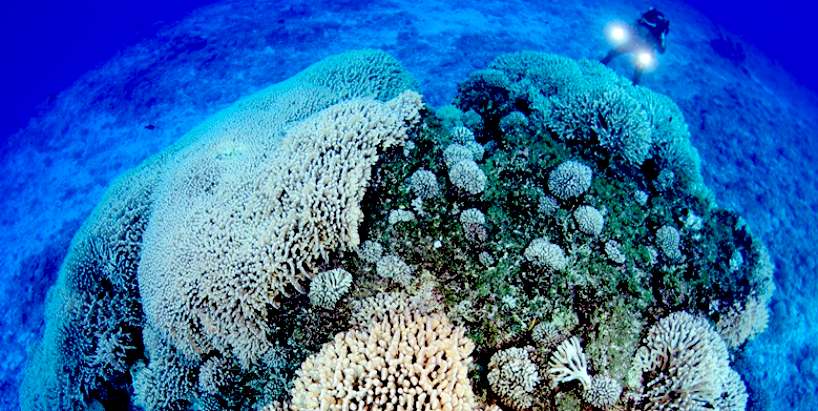
ACID
OCEANS - ARCTIC
- ATLANTIC - BALTIC
- BERING
- CARIBBEAN - CORAL - EAST
CHINA - ENGLISH CH
GULF
MEXICO
- GOM - INDIAN
- MEDITERRANEAN -
NORTH SEA - PACIFIC
- PERSIAN GULF - SEA
JAPAN - STH
CHINA
PLANKTON
- PLASTIC
- PLASTIC
OCEANS - UNCLOS
- UNEP
- WOC - WWF
|









